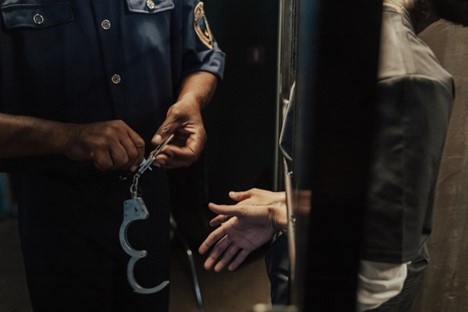Criminal offenses are divided into two categories: misdemeanors and felonies. Even though the exact definitions differ from state to state, the distinctions between the two should be evident. The penalty for each degree of crime could be severe. It’s important to remember that misdemeanors and felonies have different characteristics.
While most people are aware that driving while intoxicated is illegal, they may not be aware of the particular nature of the infraction. Is it a traffic violation like a speeding ticket?
On the other hand, will it remain on your criminal and driving records? When a DUI charge is elevated to a felony, the consequences are significantly more severe. Many people are entirely unaware of this fact. Learn whether your charges could get escalated to felonies and what you can do to prevent it.
Differences between Felony and Misdemeanor
The difference between misdemeanor and felony DUI, the former are often seen as less serious offenses than felonies. Usually, the consequences for misdemeanors are less severe than those for felonies because of this difference in seriousness. Felonies are more likely to result in jail time and a higher fine. Misdemeanors fall into three broad categories.
A misdemeanor classified as a Class A offense is considered the most serious. They can be sentenced to up to a year in prison and three years of probation.
An individual charged with a Class B misdemeanor might face up to 90 days in jail and probation. “Unclassified misdemeanors” are the final classification of criminal offenses. Each infraction in this category is punished according to specific laws.
In contrast to misdemeanors, felonies have five distinct classifications. The most serious felonies are class A, and those convicted of them face the possibility of serving a prison sentence that might last a lifetime.
The Severity of Your Offense
The following types of violations of the law are considered to be misdemeanors; however, the list is not exhaustive:
- Small-scale thefts
- Offenses that frequently occur in traffic.
- Possession of drugs by minors.
- Assault that does not include the use of a weapon.
In the United States legal system, the offense of committing a felony is regarded as the most severe crime. These crimes can be frightening and brutal and include but are not limited to the act of murdering another person.
- Manslaughter.
- Rape.
- Kidnapping.
- A massive theft.
- Arson.
- Crimes of the white-collar variety, such as identity theft.
Possible Length of Sentence
People who have been convicted of a misdemeanor serve no more than one year in jail. When convicted of a felony offense, a person is required to do a minimum of one year in prison, and depending on the gravity of the crime, they may get the sentence of life in prison or the death penalty.
The Fatality Type Offenders Will Serve In
Offenders convicted of misdemeanor offenses and placed in jail typically spend their sentences in a county or municipal jail. Those convicted of a crime will normally be required to serve out the remainder of their sentence in a state or federal prison.
Absence of Civil Liberties

A person’s civil liberties are not affected by having served their time for a minor conviction, and they retain all of their rights. However, a person who has served their time for a felony will or might lose their voting rights after their sentence expires.
- You can either run for political office or get elected to one.
- Participate in a jury trial.
- Acquisition of guns for bears.
- You can apply to get hired for various occupations.
Duration Required to Expunge Crime from Personal Record
Misdemeanor offenses can often be expunged considerably more quickly than felony offenses, even though there is no predetermined length of time defined for which a crime can be deleted from an individual’s record. For those convicted of certain felonies, the charge may never get expunged from their permanent record. This is especially true for felonies that involve acts of violence or sexual misconduct.
Degrees of Crimes
Even though more severe misdemeanor charges are often categorized in classes and degrees, felonies are virtually always separated into particular degrees of severity. The first degree is generally considered the most atrocious of the degrees.
Additional Penalties Levied
Those who are found guilty of committing a misdemeanor may be obliged to pay a fine in addition to serving time in jail. The amounts of these fines are often not very high. On the other hand, those found guilty of a felony may have to pay penalties in the tens of thousands of dollars. In addition, people found guilty of white-collar crimes may be required to make reparation to the victims of their crimes.
Conclusion
A person’s life can be permanently altered by misdemeanors and felonies, even if the intensity of their penalties can vary. Anything from career opportunities to housing security can be compromised if you have a felony conviction. With a DUI conviction resulting in someone else’s injury or death, you might face years in jail, and you’ll need an experienced attorney on your side to help you get the best possible verdict.



Leave a Comment